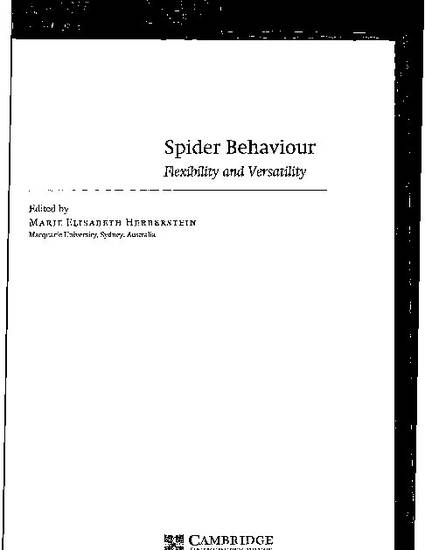
As is becoming increasingly clear, spiders are not entirely instinct driven and inflexible in their behaviour. Here we review evidence for behavioural plasticity, learning and other cognitive processes such as attentional priming and memory. We first examine these attributes in several natural contexts: predation, interactions with conspecifics and potential predators, and spatial navigation. Next we examine two somewhat more artificial experimental approaches, heat aversion and rearing in enriched versus impoverished environments. We briefly describe the neurobiological underpinnings of these behaviours. Finally, we point to areas where our knowledge gaps are greatest, and we offer advice for researchers beginning their own studies of spider learning.
Available at: http://works.bepress.com/elizabeth_jakob/6/

This material has been published in Spider Behavior: Flexibility and Versatility edited by Mary Elisabeth Herberstein. This version is free to view and download for personal use only. Not for re-distribution, resale or use in derivative works. Copyright by Cambridge University Press 2011.
http://www.cambridge.org/9780521765299